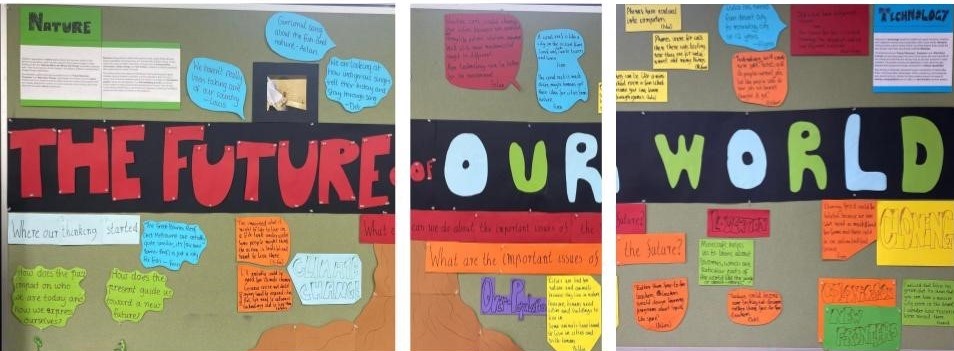Children and teachers of the Year 2 neighbourhood are excited to begin planning and preparation for a collective project. During semester 2, an Indigenous Water Garden with accompanying revised and collective Acknowledgements of Country will be established along the southern wall of the neighbourhood.
“The garden could help to reawaken Indigenous culture.” (Flynn)
“The garden could be an example of how to care for the land.” (Esther)
“It could remind Indigenous people of what it was like before colonisation. They would feel happy that we learnt about their culture.” (Noah)
Two inquiries, ‘Acknowledging Country’ and ‘Noticing Nature: Measuring Change’, led to the inception of this project and will continue to guide the work moving forward.
Acknowledging Country
This whole school provocation invited children to create personal Acknowledgements of Country. Through this process, Year 2 children determined that, by their own definition, an acknowledgement should include learning from what is true. When combined with an understanding of reconciliation, the children came to think of learning from truths as making commitments toward better futures.
Collectively the children developed the definitions below-
Acknowledge- “to express respect and thanks for what we know is true and learn from it.”
Reconcile- “acknowledging wrongs of the past and agreeing on how to work towards a better future.”
Comprehensively, children’s personal Acknowledgements of Country included a commitment to better look after nature, land, and waterways.
“It will be a garden from the time when the land was only Wurandjeri.” (Pola)
“We say sorry but our actions don’t always show that we are sorry.” (Eddie)
“We’re thinking a lot about how we can show respect to Indigenous peoples.” (Sakura)
“The garden will show more respect to Indigenous cultures than we have in the past.” (Rohan)
“The garden could inspire people to stop polluting.” (Sienna)
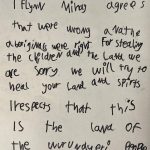
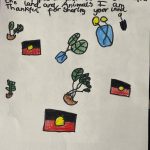

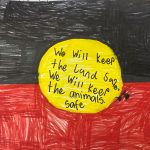
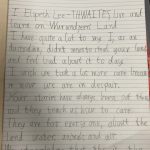
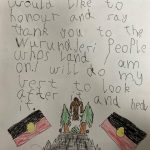
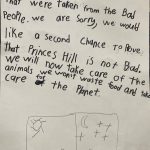
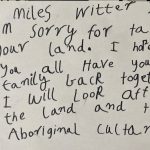
Semester 2’s work with the children’s personal Acknowledgement of Country will be underpinned by surmising and expressing the collective message embedded within the personal texts. It is endeavoured that collective Acknowledgment(s) of Country will be permanently displayed alongside the Indigenous Water Garden and accompanied by complimentary artwork. Part of the goal here is to document the children’s learning and thinking.
‘Noticing Nature: Measuring Change’
This inquiry sprung when children began to notice natural changes in the world around them. Still-life and measurement were used to enhance the investigation of these changes. Soon, children began to observe and theorise that natural changes occur over time as weather and seasons changed. The inquiry was deepened further when Indigenous perspectives of seasons were introduced. Documentation indicates that these new ways of perceiving nature and the connectedness between natural change and lifestyle have piqued their curiosity.
“Aboriginal people with nature are like us with cities. Nature and seasons control what they do.” (Aslan)
“The garden will remind us that people can look after nature instead of polluting.” (Yi-En)
“Plants are more interesting than you think they are. Aboriganal people have different ways of thinking about plants.” (Billie)
“Learning about Indigenous seasons is good because then we learn a lot of their culture which was nearly lost and stolen.” (Seb)
This week, children have measured the neighbourhood around us and the garden beds outside. This has involved deciding on what uniform units to measure with and creating our own rulers. Before the end of term, children will present personal preliminary plans for the garden beds.
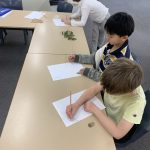
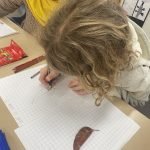
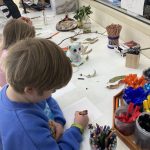
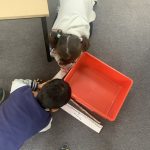
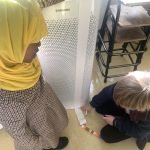
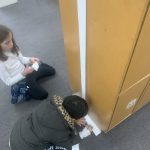
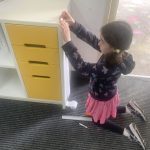

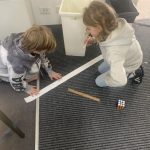
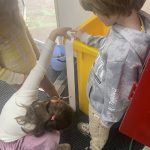
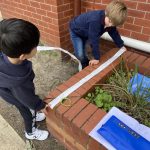
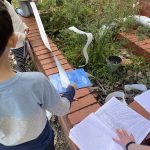
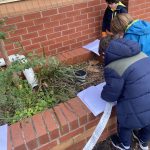
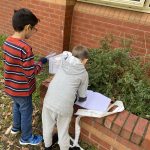
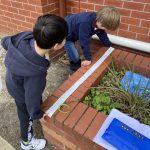
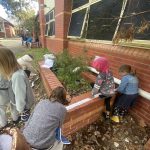
The work to come will involve research to identify suitable, Indigenous plants and how they grow best, as well as more mathematical exploration to appropriately divide the beds and surrounding space. Following this, children’s personal plans for the garden will be surmised and readapted to become collective, final plans. Furthermore, a system to manage and maintain the garden ongoingly will be developed.
“We are including Woiwurrung peoples’ plants, not just any old plants.” (Aaliyah)
“Planting Indigenous plants will bring this place back to life.” (Isla)
On Wednesday, July 13, Year 2 children will attend an excursion to CERES to undertake an Indigenous Perspectives program. The intention is that this experience will amplify connection, interest, understanding, news ideas and research related to the development of the Indigenous Water Garden.
